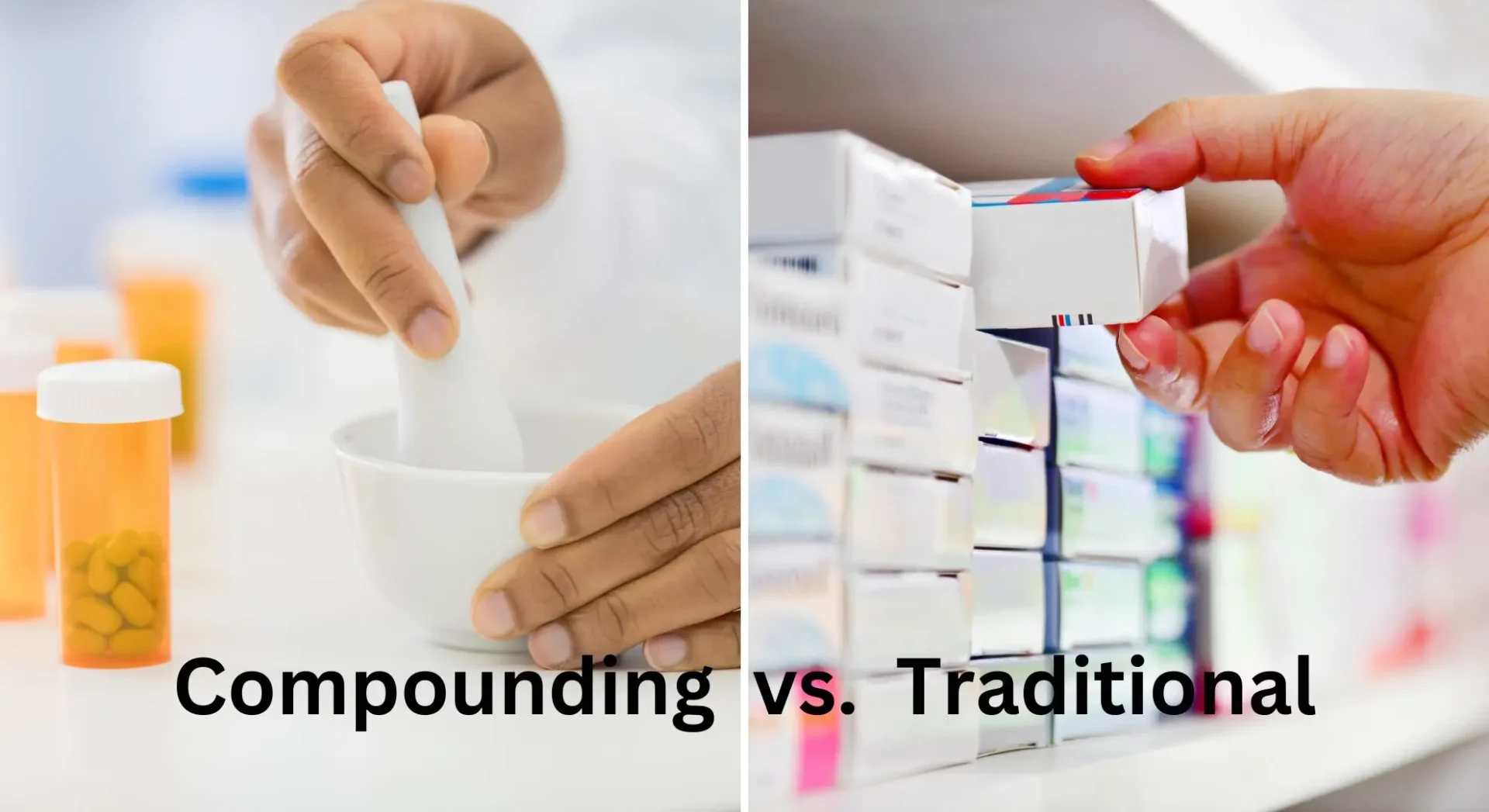How Compounding Pharmacies Differ from Traditional Pharmacies – The Benefits of Personalized Medications
When it comes to filling prescriptions, most people think of the traditional pharmacy model—large retail chains or local drugstores that dispense standardized medications in pre-set dosages. However, for individuals with unique medical needs, a one-size-fits-all approach may not always be effective. This is where compounding pharmacies come in. Unlike traditional pharmacies, compounding pharmacies offer customized medications tailored to each patient’s specific requirements. Let’s explore the key differences between these two pharmacy types and the benefits of personalized medications.
What is a Compounding Pharmacy?
A compounding pharmacy specializes in creating custom medications by mixing individual ingredients to meet a patient’s specific needs. This practice allows pharmacists to adjust dosages, alter formulations, or even eliminate allergens from medications. Unlike mass-produced pharmaceuticals, compounded medications are not available in standard retail pharmacies and are made to order based on a doctor’s prescription.
Key Differences Between Compounding and Traditional Pharmacies
- Customization vs. Standardization
- Traditional pharmacies dispense medications that are mass-produced by pharmaceutical companies in set strengths and formulations. Patients must choose from the available options, which may not always suit their specific needs.
- Compounding pharmacies, on the other hand, create medications tailored to the individual. Whether it’s adjusting the dosage, changing the delivery method (such as turning a pill into a liquid), or combining multiple medications into one, compounding offers a personalized approach.
- Access to Discontinued Medications
- Pharmaceutical companies sometimes discontinue medications due to low demand, even if they are still needed by some patients.
- Compounding pharmacies can recreate these discontinued medications by sourcing pharmaceutical-grade ingredients and formulating them according to the original prescription.
- Alternative Dosage Forms
- Many patients struggle with taking medications in their standard forms. For example, children, elderly patients, or those with swallowing difficulties may find it hard to take pills.
- Compounding pharmacists can transform a pill into a liquid, topical cream, or even a flavored lozenge, making it easier for patients to take their medicine.
- Elimination of Allergens and Irritants
- Commercially available medications often contain fillers, dyes, or preservatives that can cause allergic reactions or sensitivities.
- Compounded medications can be formulated without these unnecessary additives, ensuring a safer alternative for those with allergies or intolerances.
- Veterinary Compounding
- Traditional pharmacies focus primarily on human medications.
- Compounding pharmacies also serve the veterinary field by customizing medications for pets, adjusting flavors, dosages, and delivery methods to ensure easier administration.
The Benefits of Personalized Medications
- Improved Patient Compliance
- When medications are customized to fit a patient’s preferences—whether through flavoring, dosage adjustments, or different forms—patients are more likely to take them consistently, leading to better health outcomes.
- Targeted Treatment for Unique Needs
- Patients with rare conditions or those requiring specialized hormone therapies (such as bioidentical hormone replacement therapy) benefit greatly from compounding, as their treatment can be specifically designed to suit their individual physiology.
- Enhanced Pediatric Care
- Children often refuse to take medication due to taste or texture. A compounding pharmacy can add flavors like cherry or bubblegum, making the experience more pleasant and ensuring that kids take their prescribed doses.
- Optimized Pain Management
- Patients suffering from chronic pain conditions may need unique formulations, such as topical creams or transdermal gels, that target pain directly at the source instead of relying on systemic painkillers, which can have unwanted side effects.
- Support for Patients with Unique Medical Conditions
- Patients with conditions such as autism, thyroid disorders, or gastrointestinal sensitivities may require specialized formulations not found in commercial medications. Compounding provides a solution tailored to their specific health needs.
Conclusion
While traditional pharmacies play a crucial role in providing widely used medications, compounding pharmacies fill an essential gap by offering customized solutions for patients with unique needs. The ability to personalize medications leads to better treatment outcomes, improved compliance, and enhanced quality of life. If you or a loved one have difficulty with commercially available medications, consulting a compounding pharmacist may be the key to receiving truly personalized care.






